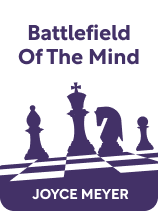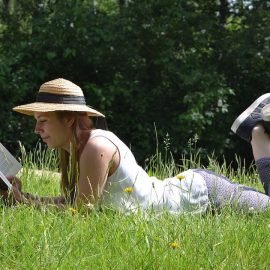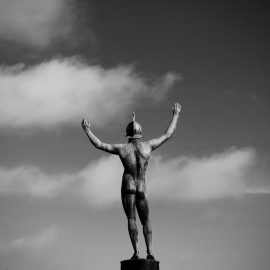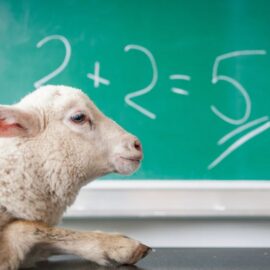

This article is an excerpt from the Shortform book guide to "Battlefield of the Mind" by Joyce Meyer. Shortform has the world's best summaries and analyses of books you should be reading.
Like this article? Sign up for a free trial here .
Do you see through natural eyes or spiritual eyes? Do you have a worldly perspective or an eternal perspective?
In Battlefield of the Mind, Joyce Meyer writes that Satan can trap us in a negative mindset if he can convince us that a better future is impossible. Satan can do this by prompting us to have a worldly perspective—to see the world through what Meyer calls our “natural eyes,” which focus on the physical world. The alternative is an eternal perspective.
Keep reading to understand these concepts better.
Worldly vs. Eternal Perspective
When we have a worldly perspective and focus on the physical world, we can get caught up thinking about negative things that we see in our lives today, that we’ve seen in the past, that we tell ourselves, and that other people may tell us about our future. Focusing exclusively on these negative experiences is a self-defeating way to think about our future potential and can cause us to adopt what Meyer calls a “failure attitude.”
To escape a “failure attitude,” Meyer explains that we must choose to adopt an eternal perspective—to look at the world through “spiritual eyes” as opposed to “natural” eyes. When we look at the world through “spiritual eyes,” our future is not determined by past or present circumstances but by God’s plan for us. When we let the Holy Spirit guide our eyes and shape our view of the future, we can be free from negative preconceptions and open to the idea of a future that does not look like our present or our past. Of course, seeing the future with “spiritual eyes” does not mean that our path will be easy, but for a mind lost in negativity, “spiritual eyes” can show us that there is indeed a way out.
| Using Our “Natural Eyes” to Collect Data In her best-selling book Thinking in Bets: Making Smarter Decisions When You Don’t Have All the Facts, Annie Duke takes a secular approach in her advice on crafting a more positive future. While Meyer advocates eschewing our “natural eyes” and envisioning the future with “spiritual” ones, Duke argues that we should use what we can observe with our “natural eyes” as data to make smarter choices. Duke explains that viewing every decision as a bet can help us be more objective in our reasoning. Like Meyer, Duke acknowledges that wrong beliefs can trap us in a mindset where we’re prone to making bad decisions. She uses the term “motivated reasoning” to describe our tendency to continue to believe things even when it’s clear that our belief is incorrect. (Meyer might call this a mental stronghold.) While Meyer urges readers to use “spiritual eyes” to look past wrong beliefs, Duke urges her readers to imagine forcing themselves to place a bet on that wrong belief. Doing this can help us make choices based on probability and facts rather than emotions. It also forces us to acknowledge that some of our beliefs may be misconceptions. In Duke’s model, everything that we can observe with our “natural eyes” and everything we’ve learned through past experiences become useful pieces of data in casting these bets. |

———End of Preview———
Like what you just read? Read the rest of the world's best book summary and analysis of Joyce Meyer's "Battlefield of the Mind" at Shortform .
Here's what you'll find in our full Battlefield of the Mind summary :
- How the Devil makes it his mission to corrupt our minds with negative thoughts
- How to recognize the signs that Satan is attacking your mind
- How to thwart Satan’s attacks and find happiness and fulfillment






